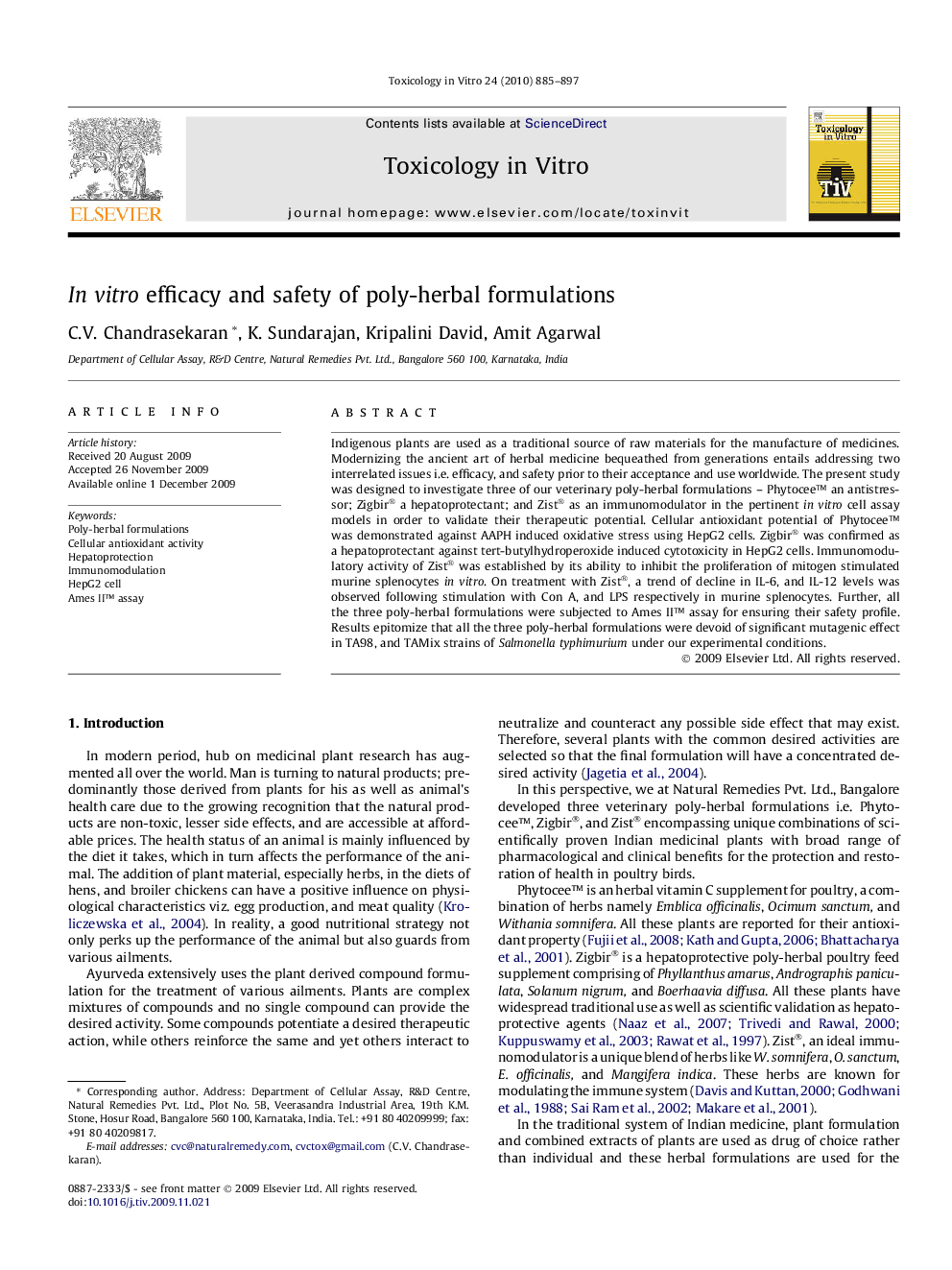| کد مقاله | کد نشریه | سال انتشار | مقاله انگلیسی | نسخه تمام متن |
|---|---|---|---|---|
| 2602947 | 1133802 | 2010 | 13 صفحه PDF | دانلود رایگان |

Indigenous plants are used as a traditional source of raw materials for the manufacture of medicines. Modernizing the ancient art of herbal medicine bequeathed from generations entails addressing two interrelated issues i.e. efficacy, and safety prior to their acceptance and use worldwide. The present study was designed to investigate three of our veterinary poly-herbal formulations – Phytocee™ an antistressor; Zigbir® a hepatoprotectant; and Zist® as an immunomodulator in the pertinent in vitro cell assay models in order to validate their therapeutic potential. Cellular antioxidant potential of Phytocee™ was demonstrated against AAPH induced oxidative stress using HepG2 cells. Zigbir® was confirmed as a hepatoprotectant against tert-butylhydroperoxide induced cytotoxicity in HepG2 cells. Immunomodulatory activity of Zist® was established by its ability to inhibit the proliferation of mitogen stimulated murine splenocytes in vitro. On treatment with Zist®, a trend of decline in IL-6, and IL-12 levels was observed following stimulation with Con A, and LPS respectively in murine splenocytes. Further, all the three poly-herbal formulations were subjected to Ames II™ assay for ensuring their safety profile. Results epitomize that all the three poly-herbal formulations were devoid of significant mutagenic effect in TA98, and TAMix strains of Salmonella typhimurium under our experimental conditions.
Journal: Toxicology in Vitro - Volume 24, Issue 3, April 2010, Pages 885–897